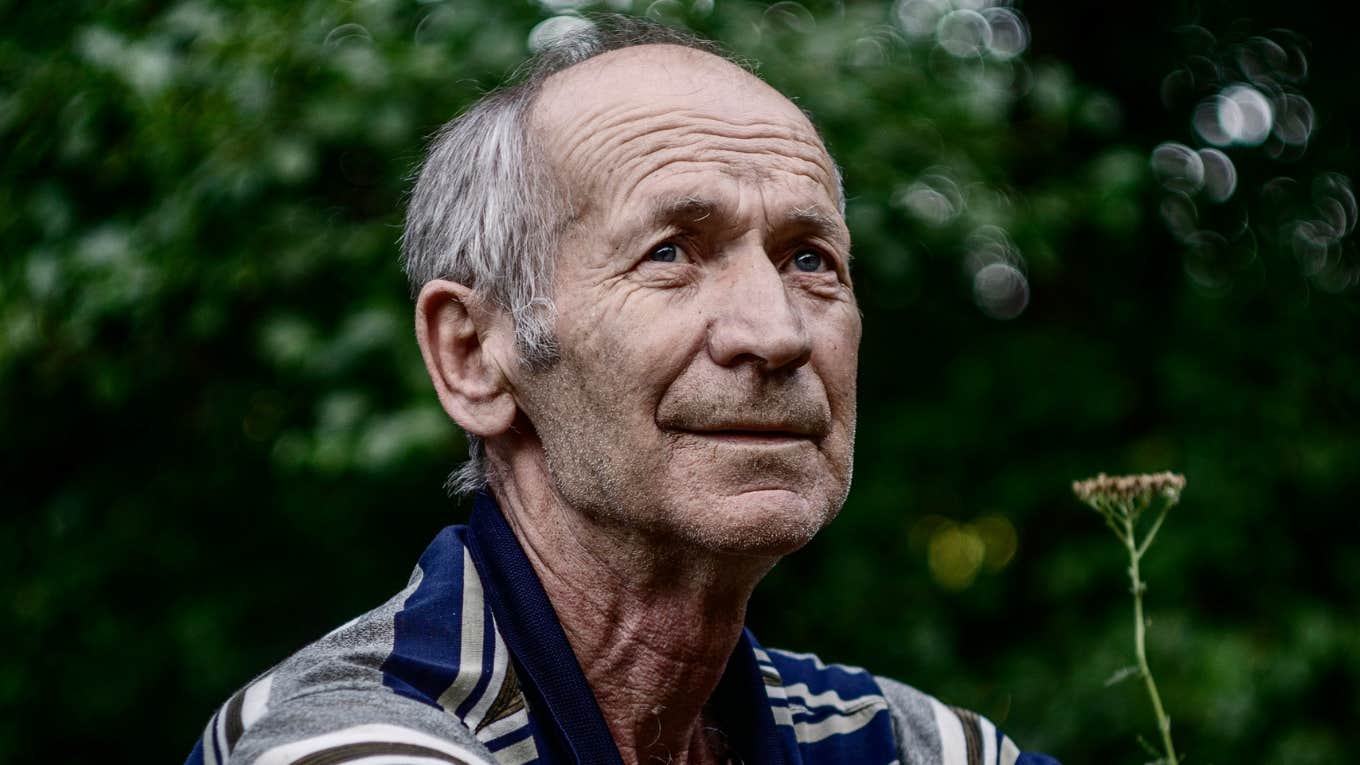Experts Reveal 5 Difficult Reasons A Parent Might Cut Off A Grandparent From Seeing Their Grandkids
Tough choices need to be made to protect children — and that includes problematic grandparents.
 Mihai Lazar | Unsplash
Mihai Lazar | Unsplash A child grows up and becomes an expert observer of their parents' behavior. When their behavior has a proven pattern of harm or destruction, a line must be drawn to interrupt the transference of generational trauma.
Interrupting the transference of generational trauma involves a multifaceted approach that addresses individual healing, promotes healthy family dynamics, utilizes evidence-based therapies, and considers the broader social and historical context of trauma. A 2017 study concluded that prevention is often considered the most effective intervention approach for intergenerational transmission of trauma.
Experts reveal five difficult reasons a parent might cut off a grandparent from seeing their grandkids:
1. The grandparent is not safe to be around
 BearFotos / Shutterstock
BearFotos / Shutterstock
In my experience, adults may choose to keep their child away from their grandparents because the grandparent is not safe. This could mean either physically or emotionally safe.
Physical harm may come from a grandparent who is an unsafe driver, who drinks, who is not cognitively sharp, or who is a poor decision-maker, for example. Lack of emotional safety is probably rooted in the parents' childhood memories where their parents were abusive or neglectful.
For example, an adult may not want their child subjected to the narcissism, manipulation, negativity, or emotional chaos they experienced in their childhood with the said grandparent.
— Mary Kay Cocharo, Couples Therapist
2. To prevent the continuation of generational trauma
 fizkes / Shutterstock
fizkes / Shutterstock
A common reason an adult may keep their child from their grandparent is to prevent the continuation of generational trauma. This decision could stem from the grandparent exhibiting harmful behaviors such as racism, homophobia, or simply being emotionally hurtful.
Many adults reflect on their own painful experiences during childhood — experiences that may have led to lasting trauma and difficulties in personal relationships. As children, they were unable to protect themselves from these negative influences, but as parents, they have the opportunity to shield their children from similar harm.
This protective instinct is a powerful motivator for preventing the same trauma from affecting the next generation.
— Erika Jordan, Dating Coach and NLP Practitioner
3. The relationship is based on fear
 Krakenimages.com / Shutterstock
Krakenimages.com / Shutterstock
There is a fear that the grandparent won't keep the child safe, or fear the grandparent has behaviors or habits, whether it's anger, or whether it's drugs or alcohol, etc.
— Susan Allan, Life Coach and Founder, The Marriage Forum Inc.
According to one study, in some cases, the parent cutting off the grandparent may be driven by their insecurities or fears, such as fear of losing control or unresolved issues from their childhood.
4. There's a lack of trust
 panyajampatong / Shutterstock
panyajampatong / Shutterstock
There is a demonstrated lack of trust. This goes from feeling their parents never honor their rules for their kids to more extreme situations (like domestic violence or narcissism). Some adults don't want their parents to treat their kids the way they were treated as children.
— Dr. Gloria Brame, therapist
5. The grandparent is overstepping boundaries
 Doucefleur / Shutterstock
Doucefleur / Shutterstock
There are no perfect parents — or grandparents — but certain behaviors are outright unacceptable. After one mom began dealing with health complications that inhibited her from caring for her son properly, her mother stepped in to look after him.
When the mom was finally able to take her son back in, she was stunned when she heard him call his grandma "mommy." The mom banned her mother from seeing her son after discovering she had intentionally convinced the boy she was his real mom.
— Francesca Duarte, writer of lifestyle, human-interest, self, adventure, and spirituality topics
More and more people have grown intolerant of the continued negative effects of harmful parenting and behavior. Especially when the person who has harmed refuses to acknowledge their contribution to the problems, these unhealthy behaviors are often the result of generational trauma being passed from parent to child.
When someone who has experienced childhood neglect or abuse begins recovering from the harmful effects of the past, they recognize the importance of protecting their well-being from future harm and often choose to distance themselves from the abusive or neglectful parent. As they become parents themselves, they will extend this boundary to protect their children from the potential harm of a grandparent who is still caught in their past trauma.
Will Curtis is YourTango's expert editor. Will has over 14 years of experience as an editor covering relationships, spirituality, and human interest topics.

